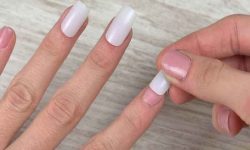Your hearing aids accompany you all day and allow you to actively participate in the discussions and cultivate your social relationships. Regular maintenance of your hearing aid is essential to ensure unlimited listening enjoyment. The following tips will help you extend the life of your hearing aids.
What should I watch for when servicing my hearing aids?
While today’s hearing systems are small and discreet, they are still devices with modern, high-performance technology. To protect them, it is imperative to maintain them with care. Here are some general maintenance tips:
- When cleaning your dentures, changing batteries, inserting or removing batteries, use flexible media. This will prevent damage to your hearing instrument should it fall out. If the fabric is solid color, it will also allow you to better find small accessories.
- As a rule, hearing aids are not waterproof, so they should not be worn while swimming, showering or going to a sauna.
- Before inserting your hearing instruments, make sure your ears are perfectly dry.
- When wearing a hat to protect your ears from the cold, protect your hearing aid at the same time.
- If you have to go for a radio, an MRI or a scanner, you must remove your hearing aids.
- Make sure that cosmetics such as make-up or hairspray do not reach your hearing aids. The ideal is to insert your hearing aids once you have finished applying all your products.
Find out below how to clean, dry and store your hearing aid so you can enjoy it for as long as possible.
CIC Hearing Aids
Wipe your hearing aid with a soft, dry cloth or special wet wipes. These can be purchased from your hearing care professional. Make sure that no liquid enters the microphone or any other hole in the prosthesis.
An in-ear hearing aid in the duct is equipped with a filtration system that ensures that no cerumen gets inside. This filtration system must be changed regularly. Earwax can also be removed using brushes, usually provided with the prosthesis. Otherwise, soft toothbrushes may also be suitable for this purpose.
BTE Hearing Aids
On BTE hearing aids, external speakers should be wiped daily with a dry wipe. This allows you to remove the dome perfectly. To know how to proceed, you can refer to the instructions for your hearing aid.
You must soak the dome, the earphone tube and the disconnected earpiece of a BTE hearing aid once a week to eliminate earwax. To do this, you can use either warm soapy water or a special detergent. The use of an adapted box facilitates and speeds up the cleaning. You should also regularly check the earphone tube and the dome. If the earpiece tube is rigid, porous or cracked, it must be replaced. The ideal is to consult your hearing care professional as soon as you notice that the earpiece tube is more rigid.
Other tips for cleaning hearing aids
- It is best to check your hearing aids daily to make sure they do not have visible clogging. If necessary, scrub them carefully with a soft, slightly moistened cloth.
- For cleaning, never use alcohol or any other cleaning agent or aggressive solvent. You could damage the electronic components.
- When cleaning, do not use sharp objects such as scissors or needles, use cleaning brushes specifically designed for this purpose.
- When cleaning your dentures, make sure your hands are clean and dry.
Drying and preservation of hearing aids
After cleaning your hearing instrument, you must thoroughly dry all components before reassembling. Moisture can cause damage and malfunctions, shortening the life of your hearing aids. If, despite everything, your hearing aid gets wet, do not use a hair dryer, heater, microwave or similar device to dry it, as strong heat can soften and deform plastic components and damage technological equipment. integrated.
To ensure a smooth and safe drying, you can use a small bellows, a drying box or a drying bag. These accessories can be purchased from your hearing care professional. Generally, it is recommended to keep your hearing aid in a drying box at night. This box dries the prosthesis electrically and guarantees better cleaning thanks to UV light. Make sure the battery compartment is open and the battery of your prosthesis removed.
Another way to dry your hearing instrument is to use a drying bag or drying jar. They use a chemical agent to absorb moisture, silica gel.
Since hearing aid amplifiers are very sensitive to humidity, radiation and heat, you should keep them in a clean, dry place. Be careful not to store them in your kitchen or bathroom or near a heater. Opt for a specific place, out of reach of children and pets, it will help you find your prostheses faster.
Since sweat and earwax can clog or stick the microphone inputs and volume control, it is important to clean your hearing aids daily and remove earwax. You can carry out this regular cleaning yourself. Professional cleaning with your hearing care professional is also possible, but this is not necessary for daily cleaning.


